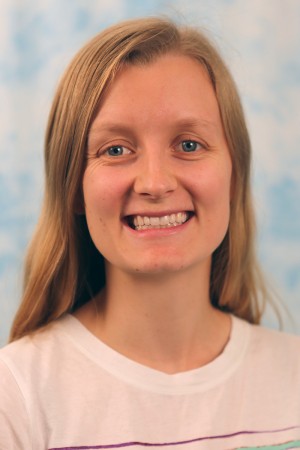PhD Speaking Qualifier
HyperDynamics: Generating Expert Dynamics Models by Observation
Abstract: We propose HyperDynamics, a framework that conditions on an agent’s interactions with the environment and optionally its visual observations, and generates the parameters of neural dynamics models based on inferred properties of the dynamical system. Physical and visual properties of the environment that are not part of the low-dimensional state yet affect its temporal [...]
Direct Fitting of Mixture Models
Abstract: There exist many choices of 3D shape representation. Some recent work has advocated for the use of Gaussian Mixture Models as a compact representation for 3D shapes and scenes. These models are typically fit to point clouds, even when the shapes were obtained as 3D meshes. Here we present a formulation for fitting Gaussian [...]
Carnegie Mellon University
Terrain Perception using Structured Light for Micro-Rovers
Abstract: With continuing advancement in technology, the future of planetary exploration is likely to be dominated by robotic missions. Yet rovers capable of science investigations are slow and bulky with very limited computing which prohibits demonstrating full autonomy. These rovers are also risk averse due to their huge mission cost. However there is a new [...]
Carnegie Mellon University
Analysis of Deadlock in Multirobot Systems
Abstract: Collision avoidance for multirobot systems is a well-studied problem. Recently, control barrier functions (CBFs) have been proposed for synthesizing controllers that guarantee safety while simultaneously encouraging goal stabilization for multiple robots. However, it has been noted that reactive control synthesis methods (such as CBFs) are prone to deadlock, an equilibrium of system dynamics that [...]
Interleaving Graph Search and Trajectory Optimization for Aggressive Quadrotor Flight
Abstract: Quadrotors can achieve aggressive flight by tracking complex maneuvers and rapidly changing directions. Planning for aggressive flight with trajectory optimization could be incredibly fast, even in higher dimensions, and can account for dynamics of the quadrotor, however, only provides a locally optimal solution. On the other hand, planning with discrete graph search can handle [...]
See, Hear, Explore: Curiosity via Audio-Visual Association
Abstract: Exploration is one of the core challenges in reinforcement learning. A common formulation of curiosity-driven exploration uses the difference between the real future and the future predicted by a learned model. However, predicting the future is an inherently difficult task which can be ill-posed in the face of stochasticity. In this work, we introduce [...]
MonoClothCap: Towards Temporally Coherent Clothing Capture from Monocular RGB Video
Abstract: We present a method to capture temporally coherent dynamic clothing deformation from a monocular RGB video input. In contrast to the existing literature, our method does not require a pre-scanned personalized mesh template, and thus can be applied to in-the-wild videos. To constrain the output to a valid deformation space, we build statistical deformation [...]
Policy Decomposition : Approximate Optimal Control with Suboptimality Estimates
Abstract: Owing to the curse of dimensionality, numerically computing global policies to optimal control problems for complex dynamical systems quickly becomes intractable. In consequence, a number of approximation methods have been developed. However, none of the current methods can quantify by how much the resulting control underperforms the elusive globally optimal solution. We propose Policy [...]
Inverse Reinforcement Learning with Explicit Policy Estimates
Abstract: Various methods for solving the inverse reinforcement learning (IRL) problem have been developed independently in machine learning and economics. In particular, the method of Maximum Causal Entropy IRL is based on the perspective of entropy maximization, while related advances in the field of economics instead assume the existence of unobserved action shocks to explain [...]
Learning to Compose Hierarchical Object-Centric Controllers for Robotic Manipulation
Abstract: To perform manipulation tasks in the real world, robots need to operate on objects with various shapes, sizes and without access to geometric models. It is often infeasible to train monolithic neural network policies across such large variance in object properties. Towards this generalization challenge, we propose task-axis controllers, which are defined relative to [...]









